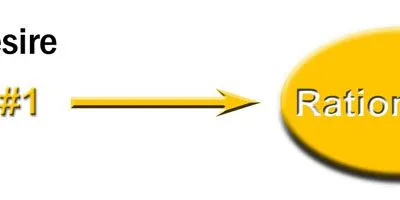Play Politics or Risk Your Job
Posted on04 Nov 2010
TagsThe Will to Power, The Economist, Schumpeter, risk, bank, boss, co-workers, confidence, drive, feelings, good job, interpersonal, Jeffrey Pfeffer, Job, Paths to Power, Performance, politics, power, rationale, relationships
Comments4
Once, a woman who had just joined a bank wanted to meet with me since I had experience working at a bank.... Read More
The Irrationality of Procrastination
Posted on14 Oct 2010
Tagsirrational, University of Calgary, The Thief of Time, The New Yorker, scientific, reality, rationale, procrastination, Piers Steel, Personality, objective, Mark D. White, logic, intuition, emotions, decisions, Chrisoula Andreou, action
Comments1
I came across a book review in the October 11, 2010 issue of The New Yorker about The Thief of Time, edited... Read More
What Consumer Psychology Teaches Us About Problem Solving
Posted on27 Sep 2010
Tagsanticipatory, beverages, brain, business, buying habits, change, cognition, competitive, consumer, cost-benefit, Dan Ariely, decisions, drugs, emotions, expectations, goal setting, Harvard Business Review, How Concepts Affect Consumption, intuition, keeping up with the Joneses, low-cost, Michael I. Norton, objective, peer pressure, people, price, problem solving, psychology, rationale, rewards, teach
Comments0
We often anticipate and rationalize people’s decisions using a cost-benefit analysis. This perspective frequently leads to erroneous conclusions and restricts problem-solving capabilities.... Read More
The Words “Feel” and “Think” as Tools
Intuitive approaches require the identification of emotional drivers in influencing and problem solving. They generally work better than cognitive approaches because emotional... Read More
The Success of Failure and the Failure of Success
Posted on16 Sep 2010
Tagsobjective, feelings, flexibility, gain, history, intuition, joy, learn, legitimate, lesson, logic, mistakes, fear, organization, pain, perspective, Peter M. Madsen, planning, profitability, rationale, success, The Economist, Vinit Desai, Academy of Management Journal, anticipatory, decisions, emotions, employees, experience, failure
Comments7
How many times have we heard, “Nothing breeds success like success?” In a study of the orbital launch vehicle industry by Peter... Read More
The Rise of Intuition
Posted on09 Sep 2010
Tagsadvancements, biotechnology, BNET Blog, cognition, communications, decisions, emotions, feelings, illusion, Influence, intuition, knowledge, leadership, management, nanotechnology, Psychology Today, rationale, sales, scientific, sensors, uncertainty, unknown, wants
Comments1
The other day a colleague forwarded this link to the BNET blog speaking to intuition. Embedded in it was a link to... Read More
Business is Personal and Why There’s No Way Around It
Posted on19 Jul 2010
Tagsbusiness, rationale, Personality, personal, money, intuition, feelings, emotions, decisions, assumptions, approaches
Comments2
How many times have you heard, “This isn’t personal, it’s business”? A key assumption underlying an intuitive approach is that everything people... Read More
Shopping for Rationales to Justify Wants and Desires
Posted on14 Jul 2010
Tagsapproaches, cognition, decisions, desire, emotions, intuition, justification, knowledge, Personality, problem solving, rationale, subconscious, want
Comments2
Virtually all of our decisions are emotionally based. Therefore, as we saw in my previous posting, Decisions: Roles of Intuition and Cognition,... Read More
Remembering and Using Names to Build Morale and Influence
The way people look at things is greatly influenced by how they feel about us. People like to hear their names and... Read More
Decisions: Practical Implications of Intuition and Emotions
Posted on10 May 2010
Tagsdecisions, emotions, intuition, logic, practical, rationale, reason, sales, scientific, Scientific Method, statistical, Statistical Analysis
Comments4
The important practical implication of intuition and emotions in decision making is this: if we don’t grasp the underlying emotions and how... Read More





